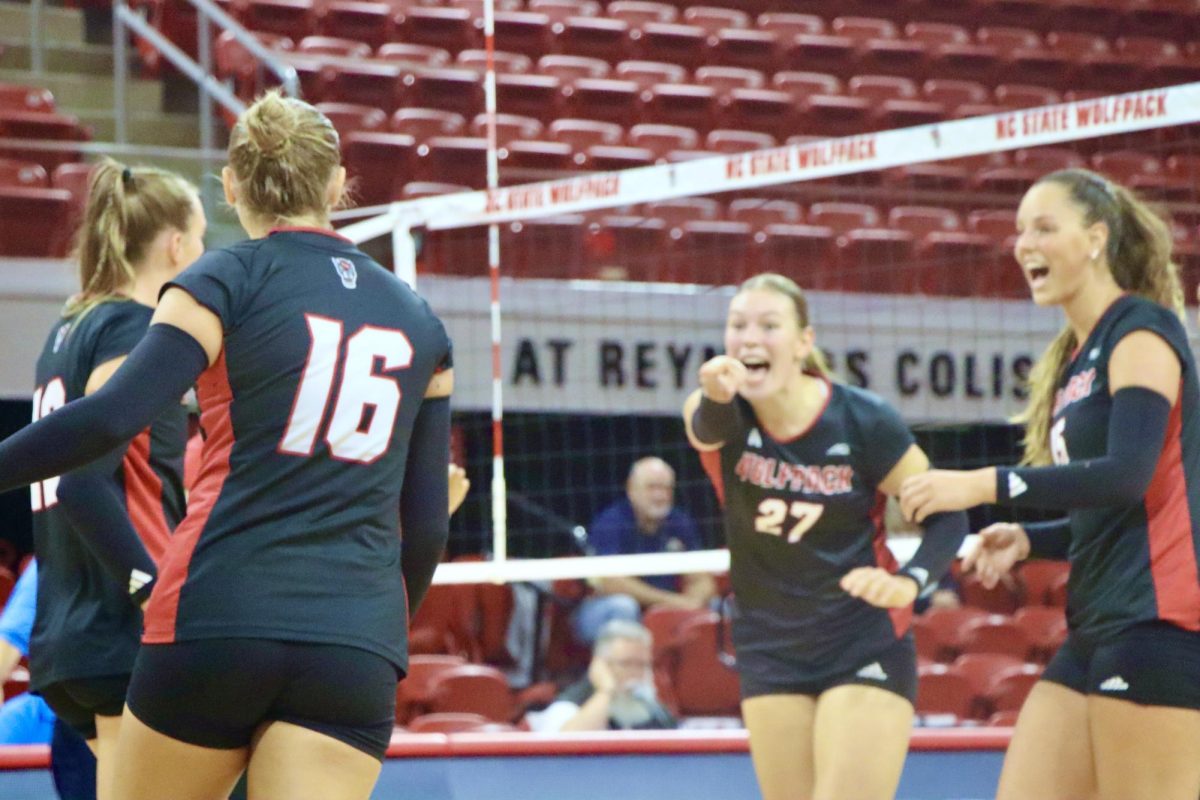The Office of International Affairs and the Global Health Initiative at N.C. State held the first Global Issues Seminar of the year Monday.
These seminars have been around since 2009 and serve as an environment for students and other members of the University to listen to an informative discussion regarding pressing global issues, according to the event’s website.
The topic of Monday’s 90-minute discussion was water security on a global scale. N.C. State students, faculty and Triangle residents interested in global affairs heavily populated the auditorium in Withers Hall. Four panelists each took a turn lecturing the audience about a variety of issues regarding water security.
Marian G. McCord, a professor of textile engineering, chemistry and science and
the director of Global Health Initiatives, said the goal of these global issues seminars is to expose students to very important issues in health world-wide.
“We hope students make connections between things they are studying here at N.C. State and global needs and solutions for these issues at hand,” McCord said.
McCord said she is a strong believer that these seminars are important and informative.
“I think it is just really important to put these big global health challenges out in front of students,” McCord said. “Students are very creative and will be the people who solve some of the greatest challenges the world is facing today and will face in the future.”
According to Water.org, 780 million humans don’t have any means of acquiring clean water and 3.4 million people die each year due to improper water sanitation and water born disease.
Velvet Gaston, a senior in environmental engineering and president of the N.C. State chapter of Engineers without Boarders, spoke first. She recapped her summer in Sierra Leone as a volunteer for the Lemon Aid Fund. While there, she worked on fixing a pipeline in order to bring clean water to that region, she said.
Detlef Knappe, a professor in civil, construction and environmental engineering, spoke next. Knappe lectured the audience about what’s called the water footprint, which is the amount of fresh water used for production to create goods.
The third speaker was Damian Shea, a professor of environmental toxicology, who lectured audiences about issues in international waters. Shea said his work is based mostly in Asia, and he previously traveled to other nations to trying to resolve conflicts between countries regarding water supply.
Matt Polizzotto, an assistant professor in soil science, finished the evening with a lecture about water use and resources such as groundwater. He said contamination in the water supply, such as the inevitable poison of arsenic, continues to be a problem.
Michael Dunning, a senior in foreign relations, said he attended the event for his International Studies 200 course.
“This seminar proved to me that this is a lot deeper of an issue than I gave it credit.” Dunning said.
Dunning said that his class had touched briefly about topics, such as water quality, but had never gone into detail.
“It was nice to hear from people who are working to solve this issue on a bigger and international scale that will have a lasting effect on the problem,” Dunning said.




